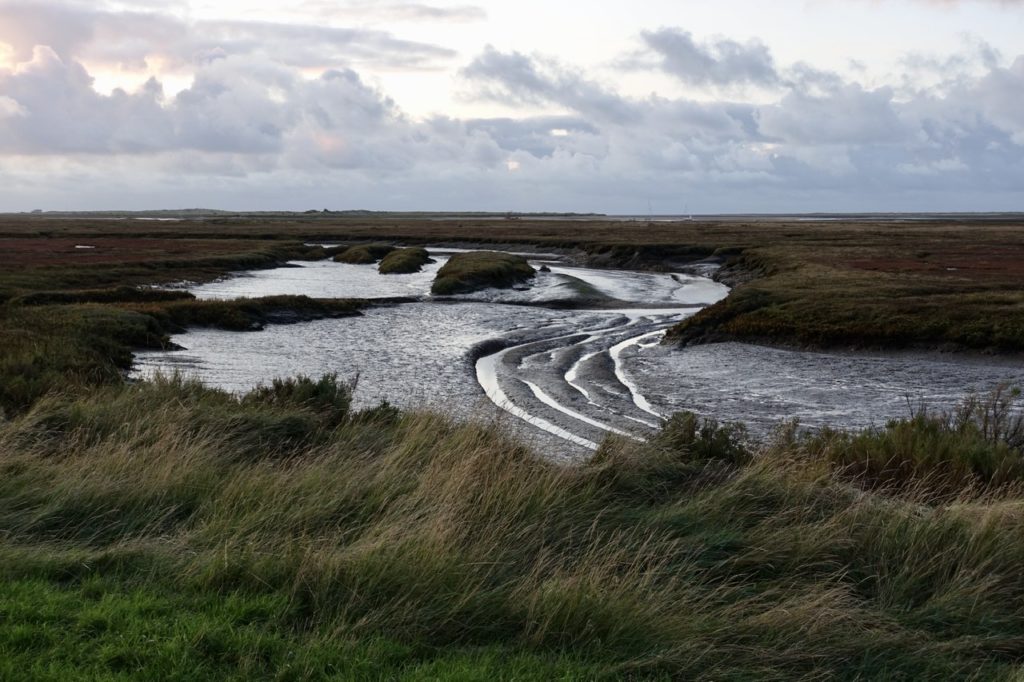On a salt-marsh in Norfolk.
Trump’s Cybersecurity czar bricks his iPhone
Another one of those stories you couldn’t make up.
The month after Rudy Giuliani was named the US president’s cybersecurity adviser, the former mayor of New York queued up outside an Apple Store in San Francisco to get staff to reset his iPhone because he couldn’t remember the passcode.
Giuliani had typed into the wrong code more than 10 times, seizing up the phone and an Apple staffer reset and restored the iPhone 6 using his iCloud backup, according to NBC News which today saw and posted a picture of the internal Apple memo concerning the visit.
The yarn – which has not been disputed – has left security experts stunned. As an adviser on cybersecurity to President Trump and more recently as his personal lawyer, Giuliani has direct access to the White House and, if reports are to be believed, is in charge of a parallel foreign policy effort involving a range of countries, most notably Ukraine.
Or, in other words, Giuliani’s phone is a prime target for surveillance efforts and he simply handed it over to a random Apple employee. Not only that but he couldn’t remember his own passcode, and has backed everything up to Apple’s iCloud. He is a walking security risk.
Not just a security risk.
Quote of the Day
“Doubt is an art which has to be acquired with difficulty.”
- Charles Sanders Peirce
Titchwell church
Linkblog
- Learning from the Ridley plan Fascinating essay on what an incoming Labour government could learn from Thatcher’s project.
- History of AI research Useful compendium by Luke Posey of significant papers and developments.
- New elevation data triple estimates of global vulnerability to sea-level rise and coastal flooding Sobering data from new satellite survey,published in Nature. Moral: best not to live in low-lying coastal regions. (Includes lots of large cities.)
- Key election safeguards won’t be ready for December poll Government was too busy with Brexit to legislate, apparently. And of course it has nothing to do with the Conservative’s social-media strategy for the election.
Linkblog
- If a Robotic Hand Solves a Rubik’s Cube, Does It Prove Something? Solving the cube is easy once you know the algorithm. But building a robotic hand that’s nimble enough to manipulate the cube is harder. The OpenAI researchers built a computer system “that learned to solve the Rubik’s Cube largely on its own”. (Italics added.) Wonder what ‘largely’ means.
- “Conspiracy loons claim victory in Brighton and Hove as council rejects plans to build 5G masts” Note the objective headline. But then that’s The Register’s style for you. Standfirst reads: “No next-gen mobile internet for you but, hey, no cancer either”.
- Machine learning on a USB stick Well, not quite. But we’re not far off as Google moves its Coral system off Beta status. The technology is on the way to being commoditised.
- Fascinating comparison of two photographs of the White House Situation Room during the Bin Laden mission and the Bagdadi mission Guess which one looks most staged.
Global risks 2035 update
From the Atlantic Council. Headlines are:
- The unipolar world of the 1990s, when the United States was the world’s sole superpower, is definitively over and will no longer be a realistic option for any president.
- An absolute United States’ decline is not inevitable, but an open conflict with China increases those risks considerably.
- A deep economic reversal in China could trigger a widespread economic meltdown that leads to a worst-case scenario of slower growth and a return to protectionism and political destabilization.
No real surprises, really.
Full report (pdf) here
Linkblog
- Media amnesia and the Facebook News Tab Why is Murdoch cosying up to Facebook?
- Data Analytics and Algorithmic Bias in Policing The RUSI Report.
- How a social network could save democracy from deadlock Interesting idea (based on the experience of Taiwan) by Carl Miller of DEMOS.
- HBO’s ‘Silicon Valley’ series if getting darker Clear case of fiction catching up with reality.
- More people still get their news from offline sources Good report by the Reuters Institute in Oxford. Challenges some conventional wisdom.
Facebook keeps digging itself into the hole
From a report in the Washington Post highlighted by Charles Arthur:
The Arizona ad, paid for by The Committee to Defend the President, is one of roughly two dozen such ads that two pro-Trump super PACs have purchased on Facebook over the past five months, according to an analysis of Facebook’s advertising archive by The Washington Post. Some of the ads falsely suggest that Democrats are purging voter rolls; others direct viewers to some version of a voter-registration form, but only after they submit information, such as their names, email addresses and political affiliations.
Responding to an inquiry from The Post, Facebook said this weekend that it was removing four of the voting-related ads for violating its policies. A spokesperson for the tech giant said it would send other ads purchased by another pro-Trump group, Great America PAC, to third-party fact-checkers to verify their assertions about states purging voter rolls.
Charles’s comment:
So Facebook won’t allow ads that might lead to voter suppression. Apart from the ones it allows. It’s exhausting; Facebook says it won’t allow something, journalists find multiple examples of it allowing something, repeat. The simple solution would be to ban political ads.
Yep. Remember Denis Healey’s First Law of Holes: when you’re in one, stop digging. And the funniest thing of all is that, in terms of Facebook’s revenues, political ads earn peanuts.
LATER The NYT is reporting that some Facebook employees are getting agitated about the decision to give politicians’ ads a free run.
Linkblog
- Bundling and unbundling Perceptive essay by Drew Austin on digital tech’s relentless dissolving of value-chains.
- How steak became manly and salads became feminine Essay by a Yale historian about his new book on the history of cuisine.
- Artificial Intelligence Research Needs Responsible Publication Norms Thoughtful exploration on Lawfare of how potentially dangerous technologies should be revealed by researchers.
- The Psychology of Silicon Valley Interesting and useful book. Available on open access too.


